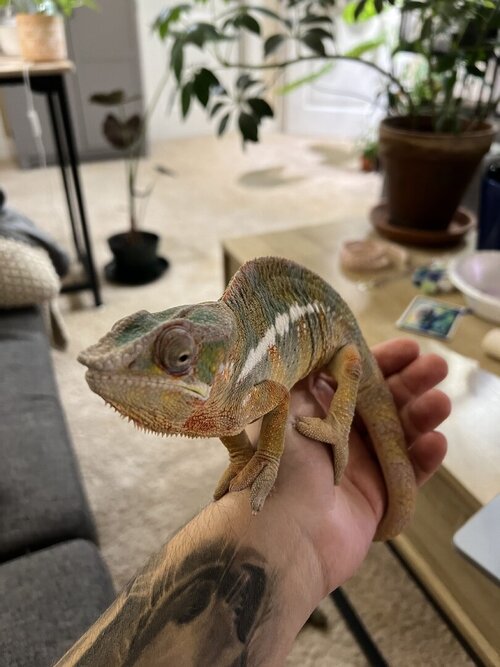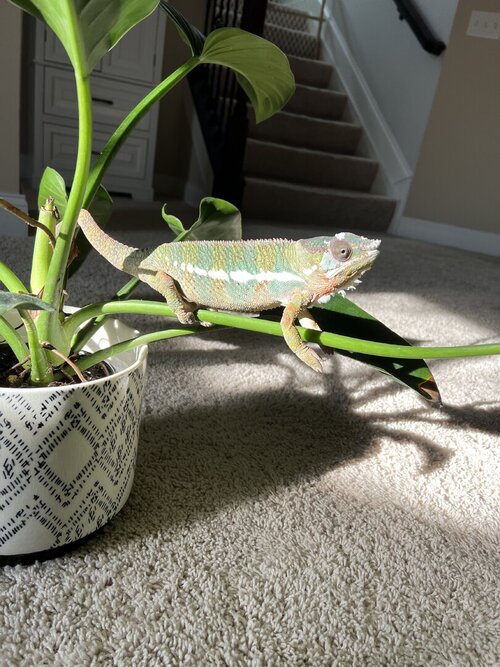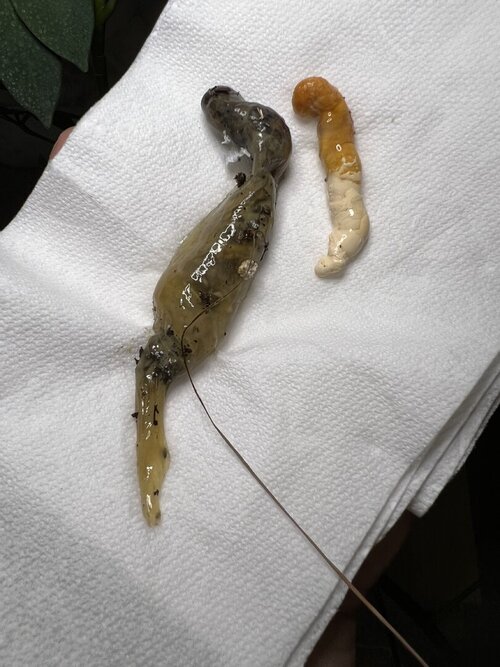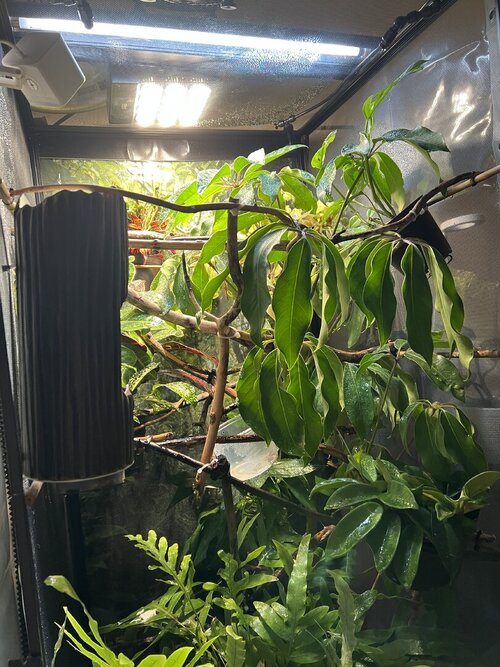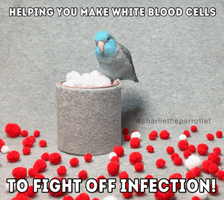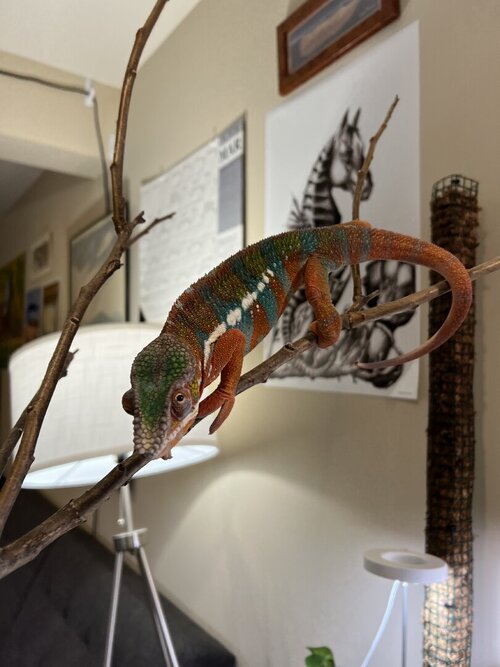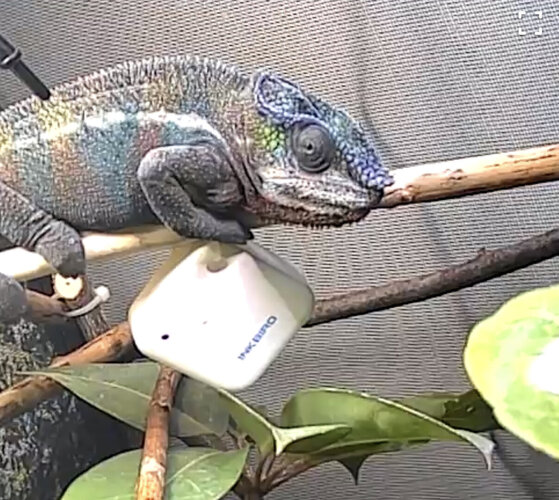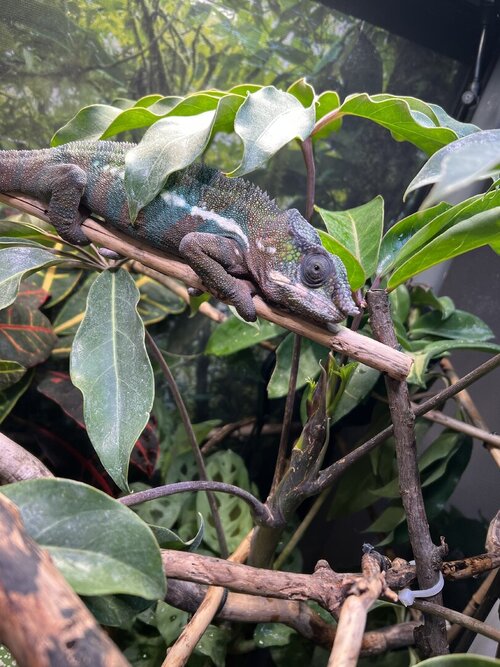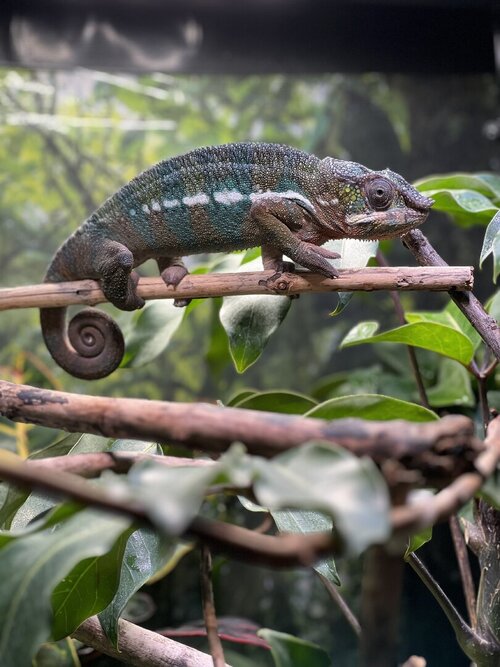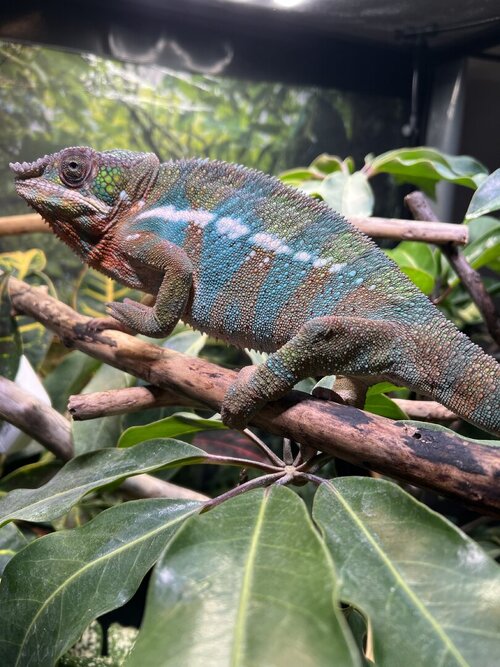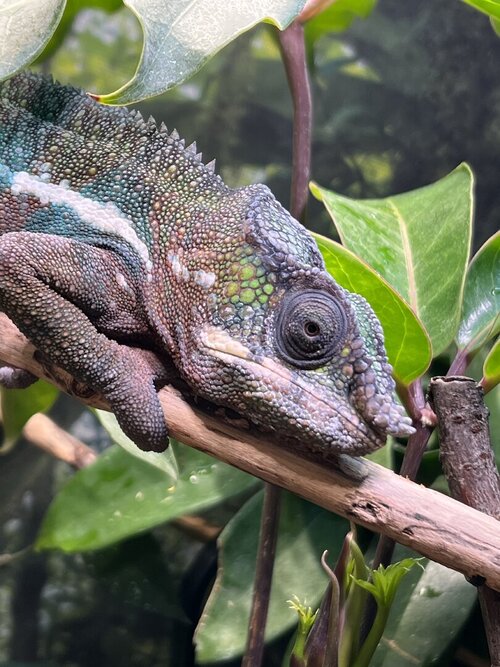ItsMike64
Established Member
Hi all! I believe my male panther of 11 months may have a very mild URI. I have heard him cough once or twice over the past two weeks, and when he is out on my hand with me, I'll hear a very quiet pop sound once every 30 or so seconds. I'm not really sure how it could have been caused, because my enclosures are decked out, have computer fans circulating, temp and humidity monitors, never mists or is humid with lights on, etc... But I don't really know what to do. The nearest vet is just down the road, but they aren't scheduling appointments for like two months. I emailed them asking if they can squeeze me in, but I doubt they'll be able to. The next closest chameleon approved vet is like 4 hours away, and I don't have the means to drive that far right now. Is there somewhere that I can get him some medication online and dose him properly? Suggestions are welcome. I have a video of him making the cough noise. He does not gape, wheeze, gasp for air, have excess saliva, or any other symptoms besides the "cough" and the popping.


